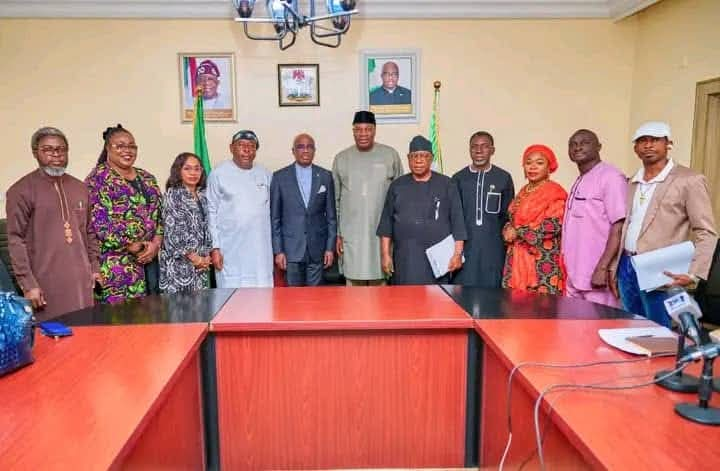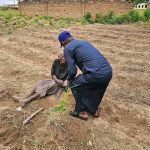Nigeria’s Benue north Accelerates Solid Mineral Dev’t

Nigeria
Benue State, Governor Fr. Hyacinth Iormem Alia has inaugurated a Steering Committee on Coal Bed Methane (CBM) and Allied Resources. The initiative seeks to harness the state’s abundant natural gas reserves to stimulate economic transformation, industrial growth, and employment creation.
The inauguration ceremony which held at the Government House in Makurdi yesterday marked another milestone in Benue’s pursuit of sustainable development.
Governor Alia described the coal bed methane project as a “low-hanging fruit” that, if properly developed, could provide a stable foundation for the state’s economy while alleviating the persistent problem of irregular power supply.
According to information from the governor’s office signed by Kehe Hon, Information Officer at Government House Makurdi, Governor Alia expressed that “for too long, we have failed to capitalize on our natural wealth. Harnessing coal bed methane will not only improve electricity availability but also create thousands of jobs, attract investors, and reposition Benue as a hub of industrial and economic activity.”
Governor Alia acknowledged the challenges posed by illegal mining activities, which have undermined revenue generation and fostered insecurity in parts of the state. He expressed optimism that institutionalizing and regulating the exploitation of coal bed methane would curb illegal practices and restore investor confidence.
Linking the CBM project to his broader developmental vision, the governor highlighted plans to establish a cargo and passenger airport in Makurdi. This infrastructure, he believes, will complement the mineral development agenda by boosting trade, tourism, and agricultural exports across the region.
Ambassador Nicholas Agbo Ella, appointed Chairman of the Steering Committee, emphasized the multifaceted benefits of coal bed methane. According to him, CBM is more than just an energy resource — it is a catalyst for industrialization, manufacturing, and agricultural processing in Benue State.
He outlined plans for modular gas-to-power plants with capacities ranging from 20 to 30 megawatts, which could supply stable electricity to agro-processing industries, industrial clusters, and healthcare facilities. Furthermore, Amb. Ella spoke about the potential of compressed natural gas (CNG) stations to fuel transportation and support manufacturing sectors like ceramics, textiles, breweries, and food processing.
“The development of coal bed methane will stimulate the energy, agriculture, transport, and service sectors simultaneously,” Amb. Ella stated. “This makes it one of the strongest levers for structural economic transformation in Benue.”
The chairman also stressed the importance of conducting baseline studies, including gas quality testing and environmental impact assessments, to generate credible data for attracting investors. He urged Governor Alia to facilitate improved air connectivity by instituting weekly flights between Makurdi, Lagos, and Abuja as an interim measure while the airport project progresses.
Ambassador Ella praised Governor Alia’s visionary leadership and investment promotion efforts, assuring that the committee would execute its mandate with professionalism, transparency, and commitment to leaving a lasting legacy for Benue’s future generations.
The 14-member Steering Committee brings together a diverse blend of experts and stakeholders, including Ambassador Nicholas Agbo Ella (Chairman), Deaconess Serumun D. Aber, Dr. Emmanuel Chenge, Prof. Mohammed Ibrahim, Hon. Alex Addingi, among others, all set to drive this transformative project forward.
As Benue State embarks on this promising path toward solid mineral development, the concerted effort to exploit coal bed methane signals a new dawn for the state’s economy and its quest for sustainable industrialization.









